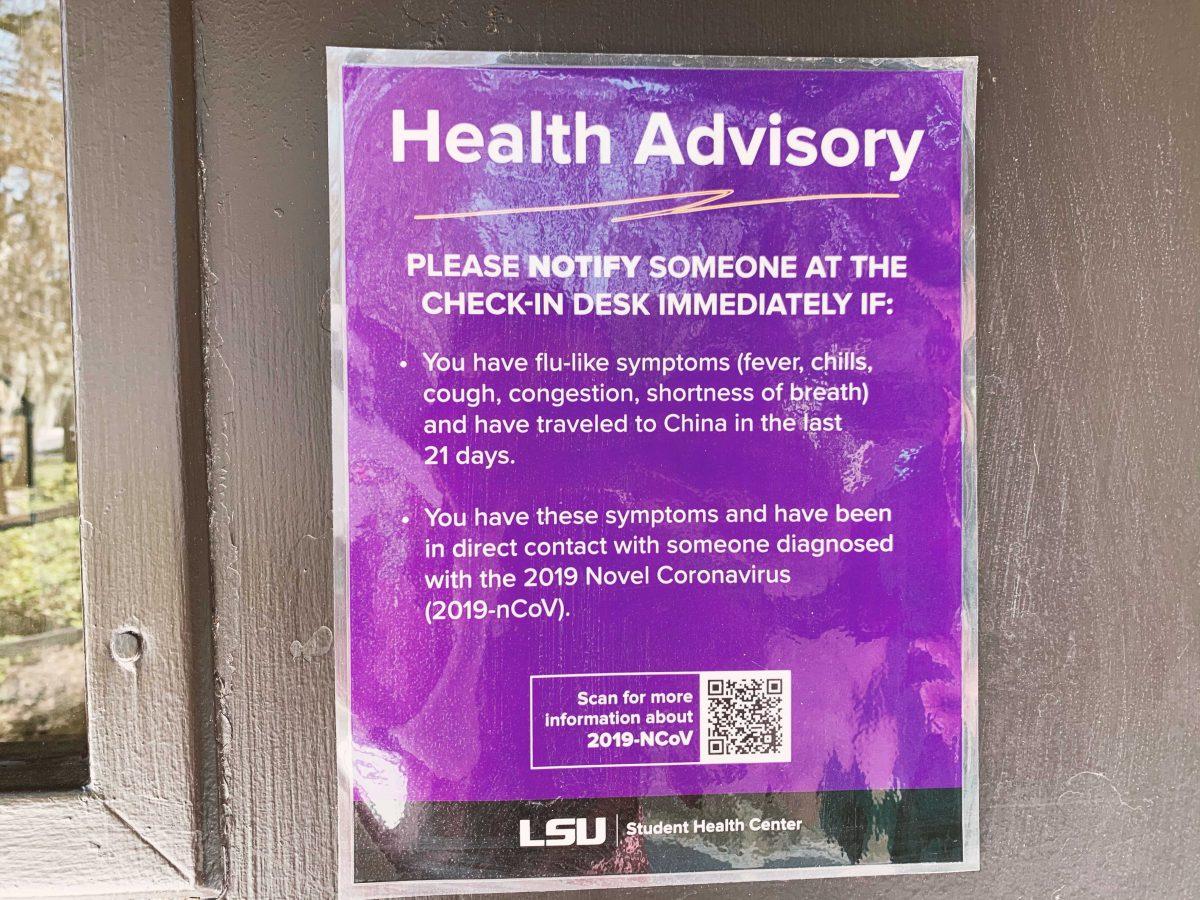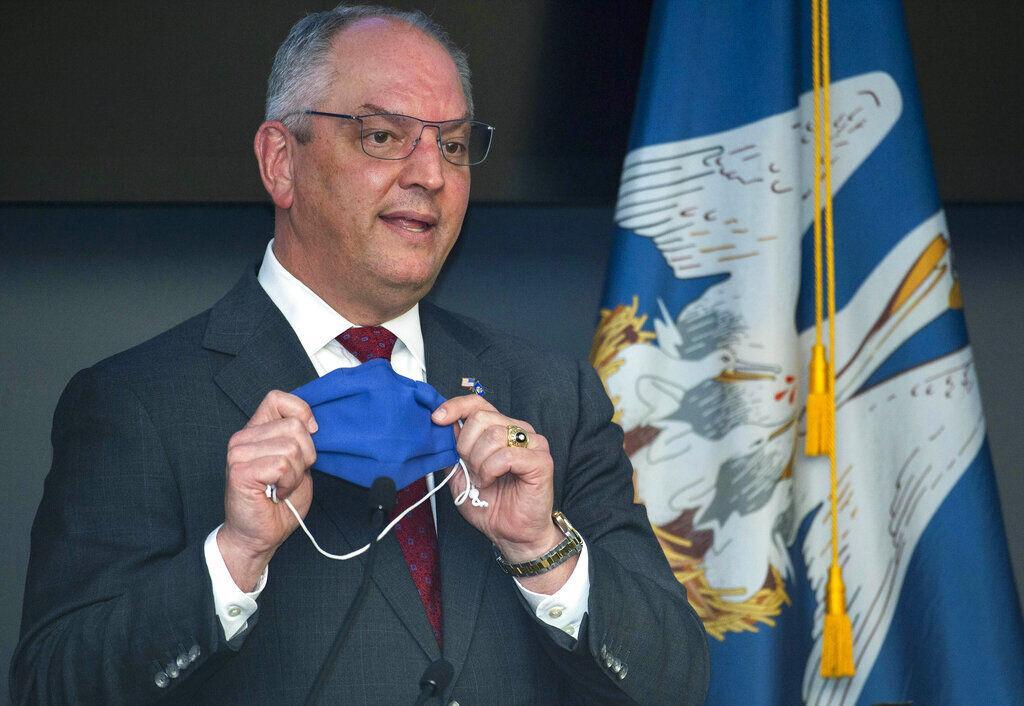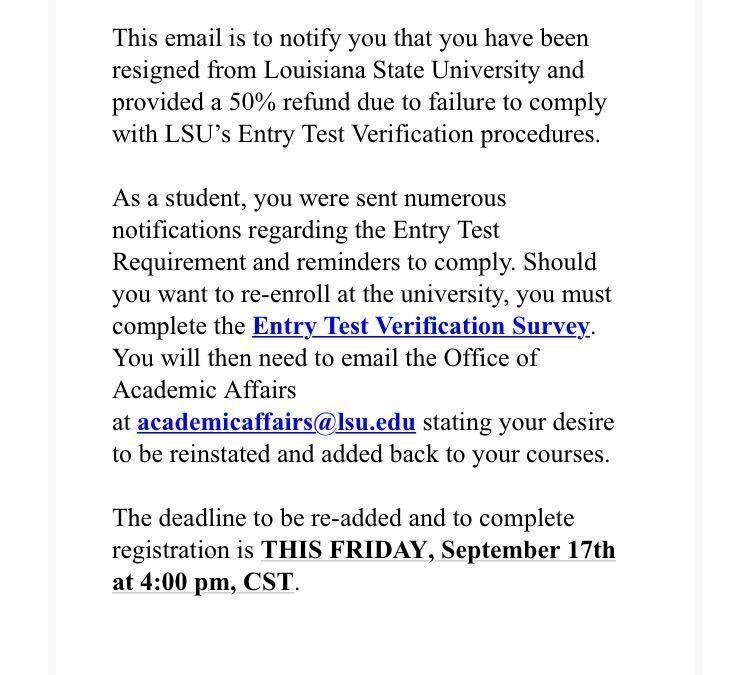The 2019 coronavirus, or COVID-19, presents a growing threat to the U.S., with over 100 confirmed cases and 11 deaths, as of March 4. Although the illness has not yet reached LSU’s campus or the state of Louisiana, many University students are still affected by the outbreak.
A group of 10 University students returned to the U.S. from a study abroad trip in Italy and are required to self-isolate for 14 days, according to Media Relations Director Ernie Ballard. The University also cancelled a spring break study abroad trip to China.
“Please be aware this is a very fluid situation that can change quickly,” an email sent to students in the canceled study abroad program said. “We are staying in touch with LSU’s Emergency Operations Center (EOC) and other offices to keep you up to date.”
Other scheduled study abroad trips have not been canceled but may be canceled as the virus continues to spread.
The University is working alongside local, state and federal health officials to monitor the developments of the virus, Ballard said, and the Centers for Disease Control and Prevention is updating University officials. There are currently no confirmed cases in or around campus.
The effects of the virus include fever, cough, shortness of breath and breathing difficulties. In severe cases, particularly in people with underlying severe and chronic health issues, infection can cause pneumonia, severe acute respiratory syndrome, kidney failure and even death.
Coronavirus spreads similarly to the flu, so the CDC is recommending people wash their hands often, avoid touching their eyes, nose and mouth, cover their mouths while coughing and stay home if they are sick. University officials also ask sick students to contact the LSU Student Health Center immediately.
LSU Division of Strategic Communications sent an email to the student body on Feb. 29 informing students of coronavirus symptoms and preventative measures.
“Students, faculty and staff who have returned from a country that is classified as Level 3 or higher by the CDC for COVID-19 are required to self-quarantine for 14 days and not return to campus unless they are asymptomatic for that period,” the email said. “Those returning from countries classified by the CDC as Levels 1 and 2 are required to monitor themselves for symptoms for 14 days and take their temperature twice a day.”
Students, faculty and staff must register international travel in the University’s international travel registry, according to the email. Trips booked with the University’s contracted travel agency are automatically registered.
One student, international studies junior Anabelle Johnson, arrived for her study abroad program in China in August 2019 and had to leave in February, although she was not initially scheduled to return until the end of the spring semester. Johnson said she was disappointed her trip came to an abrupt end.
“I thought I had three more months with the people and the country that I loved, and I’m angry that the coronavirus took that from me,” Johnson said.
Students like Johnson are required to self-quarantine for 14 days and not return to campus unless they are asymptomatic for that period. Students who return from countries with lower level infection rates, such as Italy, are required to monitor symptoms for 14 days. All students are also asked to report to a doctor immediately if they have symptoms and to avoid contact with anyone.
“Even though I knew it was for my own safety, I was devastated to be told I have to leave China,” Johnson said.
Rebecca Fontenot, director of wellness and health promotion at the Student Health Center, said the SHC is working closely with the EOC, who would lead the response should the virus come to campus. The Health Center has signs posted on every door telling students to alert someone if they believe they may be at risk for developing the coronavirus.
“We’re still seeing a lot of seasonal flu now, on top of the mumps, so here, currently, right now, you’re more likely to have the flu than the coronavirus,” Fontenot said. “We want you to take the normal preventative measures for respiratory viruses. CDC recommends washing your hands often with soap and water, avoiding close contact with people who are sick, stay home when you’re sick and cover your cough and sneeze.”
The Reveille contacted the EOC about any plans the department has in the event coronavirus makes its way onto the University’s campus, but it declined to comment. Ballard said both the SHC and EOC are “monitoring and taking guidance from Public Health and the CDC,” and the University is following all recommendations and procedures.
International trade and finance freshman Mario Gomez said the University is underprepared for an outbreak of coronavirus on campus.
“They’re not prepared at all,” Gomez said. “They haven’t sent any advertisements nor given us any types of talks about this virus.”
Mass communication freshman Bryce Johnson said he is unsure if the University would be prepared for a coronavirus outbreak on campus considering the current mumps outbreak.
“We had over a dozen cases with that [mumps] outbreak, and that’s something students are supposed to get vaccinated for,” Johnson said. “If they [LSU] are prepared, it won’t be until there’s too many cases. Then, they’ll have to figure something out quickly.”
LSU Interim President Thomas Galligan said University leaders will meet daily to discuss coronavirus prevention methods. He also said it is likely the University will cancel study abroad programs in countries labeled Level 4 or Level 3, including China, South Korea, Iran and Italy.
China is a Level 4 country, with a “do not travel” warning issued from the State Department. South Korea, Iran and Italy are Level 3, with a “reconsider travel” warning. Japan and Hong Kong are under Level 2 warnings, and travelers are advised to exercise extreme caution.
Louisiana Gov. John Bel Edwards said there are a few dozen Louisiana residents who may have been exposed, but they have all been quarantined and there are no confirmed cases.
East Baton Rouge Mayor-President Sharon Weston said her office is also monitoring the situation, and she is confident in Edwards’ administration.
Edwards announced the creation of a COVID-19 task force that will offer guidance to state agencies in a press conference on Tuesday. The state now has the capability to test for the virus through a swab.
“We do believe it’s a matter of when, not if,” Edwards said.
‘When, not if’: Coronavirus concerns reach LSU, lead to cancellations of study abroad trips
March 4, 2020
A sign hangs outside the Student Health Center warning students who have flu-like symptoms, recently traveled to China or come into contact with someone diagnosed with coronavirus to notify the front desk.
More to Discover










